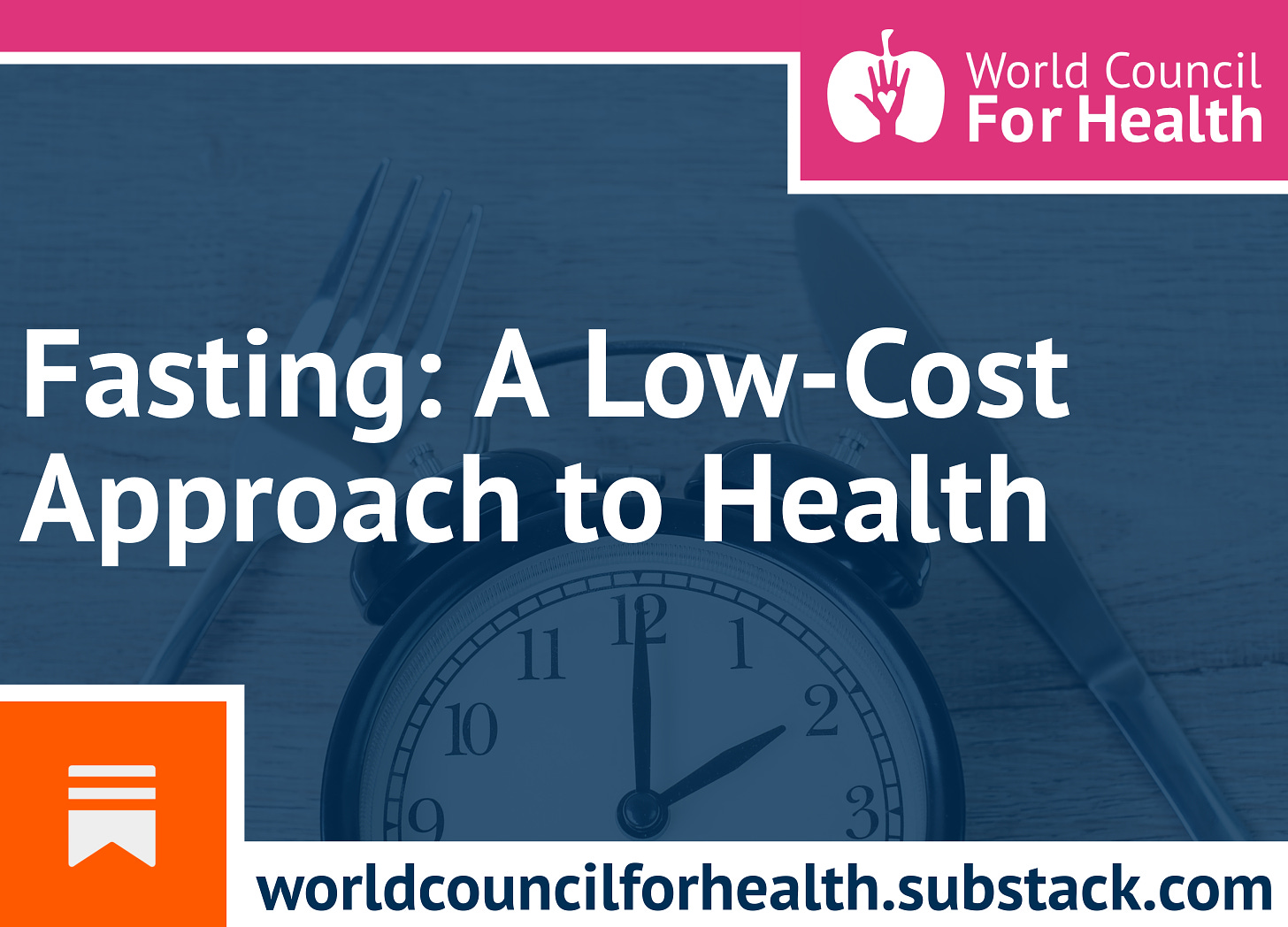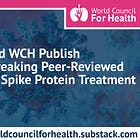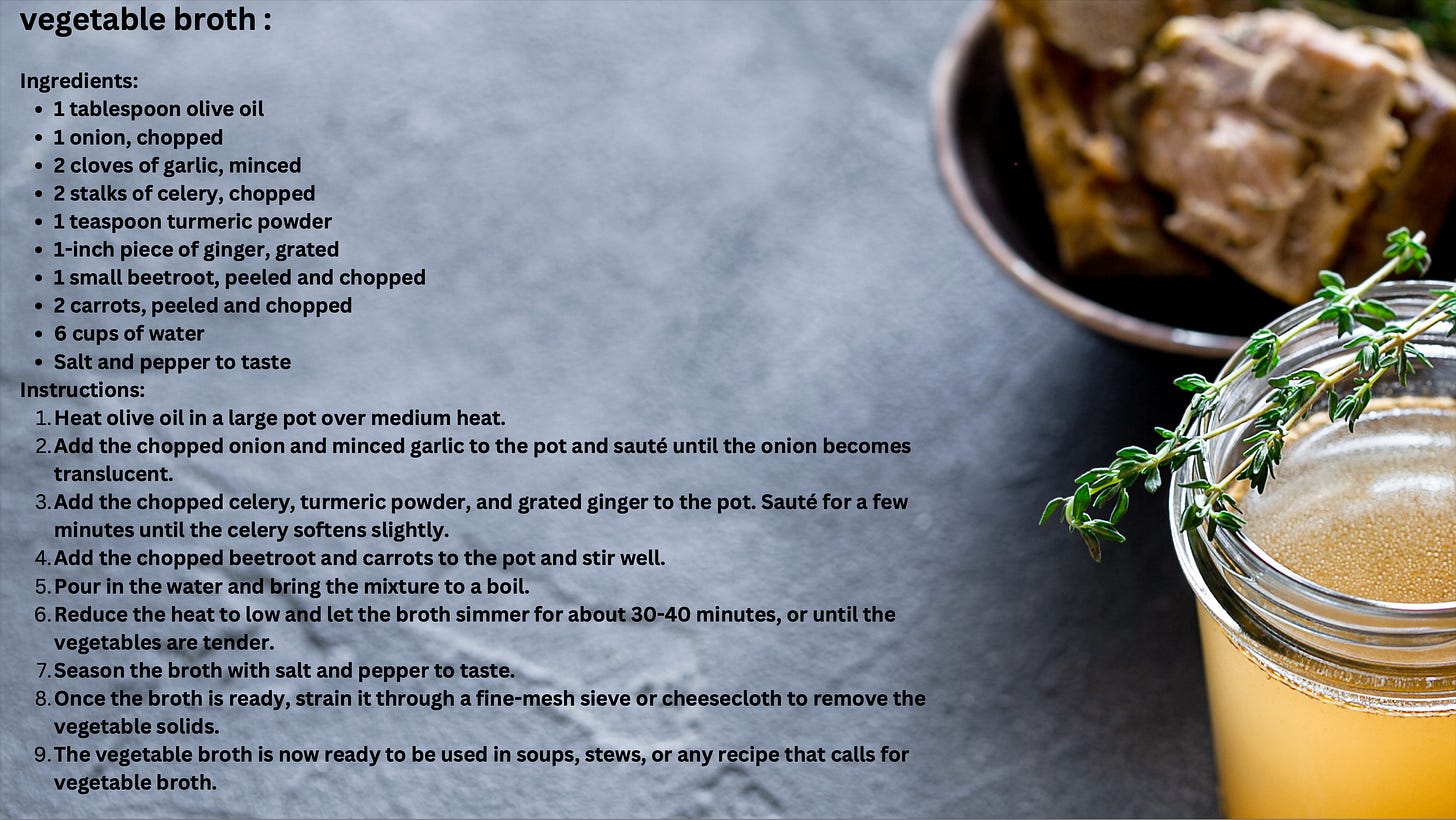What the Science Says About Fasting: A Low-Cost Approach to Health
Many different approaches to fasting exist. Let's look at four approaches that are often used therapeutically.
Birds do it, bears do it …
On Monday 11 March 2024, Emma Sron welcomed World Council for Health (WCH) Steering Committee member and Osteopath Christof Plothe to Better Way Today to talk about the health benefits of fasting. Fasting is an ancient practice within both religious and healing traditions. And it’s not just practised by humans: many animals – from hibernating brown bears to broody nesting hens – spend extended periods without food. Children and animals also often refuse to eat in the early stages of illness.
People often report that they feel more alert and alive after a fast; so, how can fasting be good for you?
Watch the full episode here.
Fasting stimulates autophagy
Scientists have coined the term autophagy (literally self-eating) to describe a process that can be induced by fasting. There are different types of autophagy: at one level, it is the process whereby the cell breaks down damaged or non-functioning components so that they can be recycled into new components. This allows the cell to function better. At another level, autophagy results in the death of the cell itself (apoptosis), which is particularly important in the case of circulating pre-cancerous cells.
Autophagy therefore plays a role in cellular renewal, and may also help to reduce inflammation, protect against certain diseases, and improve longevity. There is evidence that fasting-induced autophagy may be protective against allergies, autoimmune diseases, cancer, cardiovascular disease, Crohn’s disease, diabetes, and diseases of the nervous system. Christof has personally seen clients recover from food sensitivities after fasting.
In the wake of Covid-19 and the injection programme, there is increasing interest in therapies to help people detox from spike protein. Member of WCH’s Health Science Committee, Matthew Halma, in collaboration with Paul Marik and Yusuf Saleeby recently published a paper, Exploring autophagy in treating spike protein-related pathology, that provides a rationale for using fasting to address spike protein damage.
Fasting methods
Many different approaches to fasting exist – from giving up ‘luxuries’ during Lent, to restrictions on eating and drinking between dawn and dusk during Ramadan. Christof focused on the following four approaches that are often used therapeutically:
Intermittent fasting: This approach has become very popular, and may entail skipping meals one day per week, or the 16/8 Method, which means that you eat within an eight-hour window, skipping either breakfast or the evening meal in order to fast for 16 hours per day.
Vegetable broth fasting: This method allows you to continue obtaining essential nutrients; creates a more alkaline environment in the body, which reduces inflammation; and benefits the gut microbiome. It can be followed for between one and five days. Christof shared his delicious vegetable broth recipe for you to try:
Juice fasting: Christof recommended using a lot of seasonal greens, which are great for detoxing, but avoiding fruits as they are high in sugars. Cucumber, celery, root vegetables, and ginger are all excellent. As with vegetable broths, green juices are nourishing, alkalising, and good for the microbiome; and being raw rather than cooked, the nutrients are more bioavailable. Christof cautioned against using a high-speed blender that can actually damage the micro-RNAs in the vegetables, which might otherwise be integrated into the gene pool of the microbiome. He recommends using a cold press juicer instead.
Water fasting: Most people can manage a water fast for between one and three days only, after which it is a good idea to have supervision. It is essential to remain hydrated, and this can be monitored by checking the colour of your urine – it should be neither too dark nor too light. Good quality (filtered) water should be taken, to which you may add some drops of lemon juice, or some salt to provide minerals. While the first day of a water fast can be tough, by the second day you may start feeling more energetic.
Before, during and after the fast
Christof gives great advice on how to prepare for a fast, physically, mentally, emotionally, and spiritually. He recommends avoiding animal proteins and sugar for three days in advance, reducing time spent on digital devices, spending more time in nature, and focusing on reading and listening to more positive content.
This short video from WCH health coach, Linda Rae, provides helpful advice on preparing for and undertaking a fast.
During the fast, if you wish to boost autophagy, you may want to have on hand some supplements that can support this, such as spermidine (from wheat germ, mushrooms, peas, celery, broccoli, cauliflower), resveratrol (from red grapes and berries), ginger, curcumin, and vitamin D.
To boost detoxification, you can investigate enemas, probiotic drinks, chlorella, zeolite, and activated charcoal. Don’t be alarmed if you notice a furry tongue, bad breath, or changes to the colour and smell of urine and faeces – these are all signs of the body getting rid of toxins.
After the fast, take a while to re-introduce animal proteins and sugar. Build up your microbiome with fermented foods, and prebiotics like onions, carrots, beetroot, celery, and linseed.
Fasting and weight loss
You will surely lose weight when not consuming food, but to continue doing so, Christof recommends two approaches:
Microbiome alteration: A poor diet can disrupt your microbiome and cause you to metabolise sugar to fat too quickly, causing you to gain weight. Continuing to support your microbiome with probiotic foods can help to turn this around.
Timing of intermittent fasting: To lose weight, it is best to eat during the morning and at lunchtime, and to forego food in the evening.
Get advice …
If you are not experienced with regard to fasting, it makes sense to consult a health practitioner to ensure that there are no contraindications, such as pregnancy, gallstones or kidney stones, serious disease conditions, eating disorders, mental health issues, or prescription medications, and to monitor your progress.
This presentation resulted in lots of questions about a wide range of topics, such as the relative benefits of smoothies and juicing; how autophagy might help the heart; and whether people with Hashimoto’s thyroiditis should avoid fasting. See the recording of the full episode for Christof’s responses to these questions and more.
If you find value in this Substack and have the means, please consider making a contribution to support the World Council for Health. Thank you.








if antibodies do not occur, then vaccines can't work either, then Virologists and Big Pharma with the support of Governments are pushing for depopulation in line with the Globalists who want to stop global warming, by blaming that on the multitude of us and by reducing us, that, they think, will stop it, but since global temperatures were first recorded, our planet has warmed by only 0.02%, so the whole thing is a deliberate lie to exterminate those the Elite call "Human Rubbish" and nothing more.
nice article. something that has come to my attention with more frequency in recent months is the 'never' talked about challenges of oxalic acid toxicity. a kind of taboo subject in the vegan world. this came to my attention in 2016 when i was on a nearly vegan diet that did not clear the relatively mild albeit chronic gout i was experiencing. it in fact seemed by my experience and subsequent research at the time (no allopathy!) that this super clean diet was in some ways supporting the gout.
the naturopath i eventually consulted was indeed very puzzled because of the high quality of my cleansing diet and so did a very deep dive. the kidneys clear three acids by degree of toxicity, and oxalic acid was the most toxic and thus a significant contributor, in my case, to the chronic presence of gout. lactic acid from exercise was the next less toxic and excess uric acid was the least toxic. (this gave me an aha moment when i had many years ago been asked by an allopath if i had done an unusual or excessive amount of exercise at the time of my first gout attack — without stating it the md was affirming that the gout may have been triggered by the presence of uric acid that wasn't being cleared while the body clearing out the oxalic and lactic acids.)
the direction i was given by the naturopath, which was independently re-affirmed two years later by a vaidya (ayurvedic doctor), was for me to _not_ eat the more oxalic rich raw vegetables. furthermore under no circumstances was i to ingest either raw or cooked the oxalic acid bombs of spinach, parsley and rhubarb. you may find research into the un-talked about consequences of oxalic acid poisoning that can be a real problem for raw vegetable eaters and especially juice drinkers; and that is compounded significantly if/when the gut biome is not necessarily functioning well.
for an interesting discussion about this see Paul Saladino: “Oxalates are Ruining Your Health with Sally Norton” https://youtu.be/J35ENSaXyGU. And her book: Toxic Superfoods, https://sallyknorton.com/toxic_superfoods/
(and as an amusing aside, here is a short video on the importance of oxalic acid as an industrial cleaning agent in various ways that includes its use in metallurgy as a precipitating agent: https://youtu.be/ODBrYmqXwdk.)
[for the curious, i recently discuss this and other aspect of diet as a form of spiritual by-pass in my substack: "Body Is The Tasty Testing Ground Proof Pt 5 —Spiritual By-Passing Defined: More Premature Elations and Raw Gout Subtleties." https://gduperreault.substack.com/p/body-is-the-tasty-testing-ground-d58. and i was delighted to be able to include in it william blake's 'marriage of heaven and hell! 'one dietary deity law for the lion and the ox is oppression and illness.' (my paraphrase, of course.)]